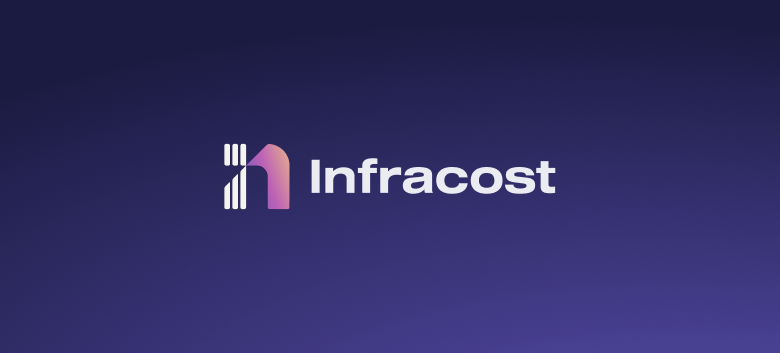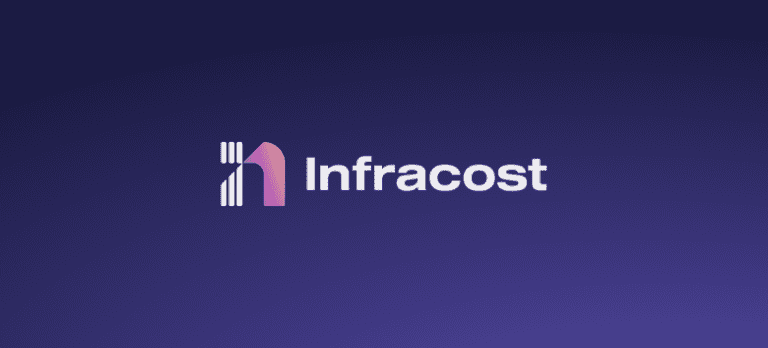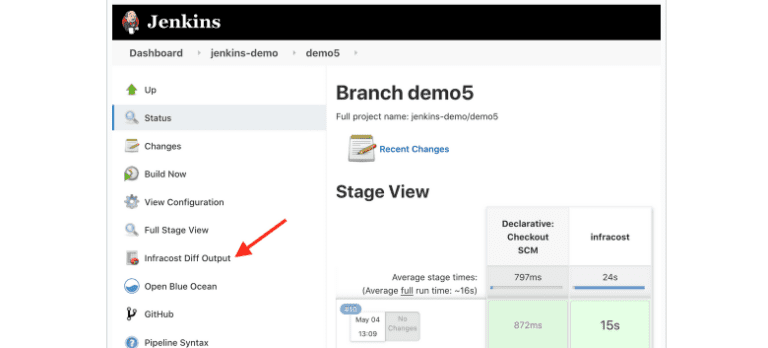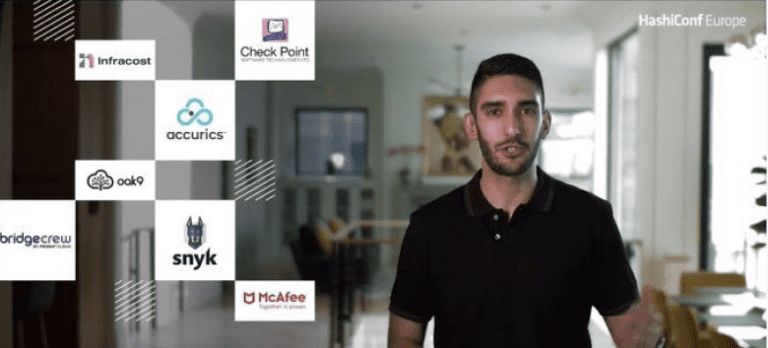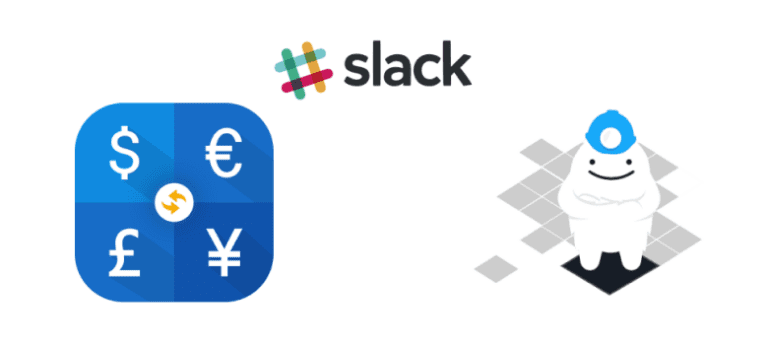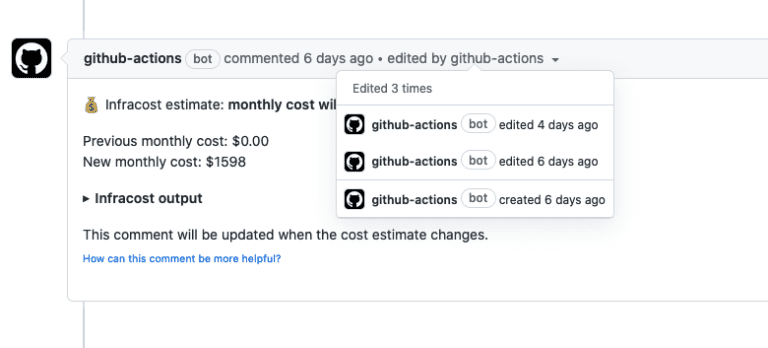November update: Issue Explorer, Azure Repos App and FinOpsX Barcelona
With autumn in full swing, we’re excited to bring you the latest Infracost updates!
If you are attending the FinOps X conference in Barcelona, stop by the Infracost booth to grab a pair of Infracost socks and see what Shifting FinOps Left actually looks like in a live demo.
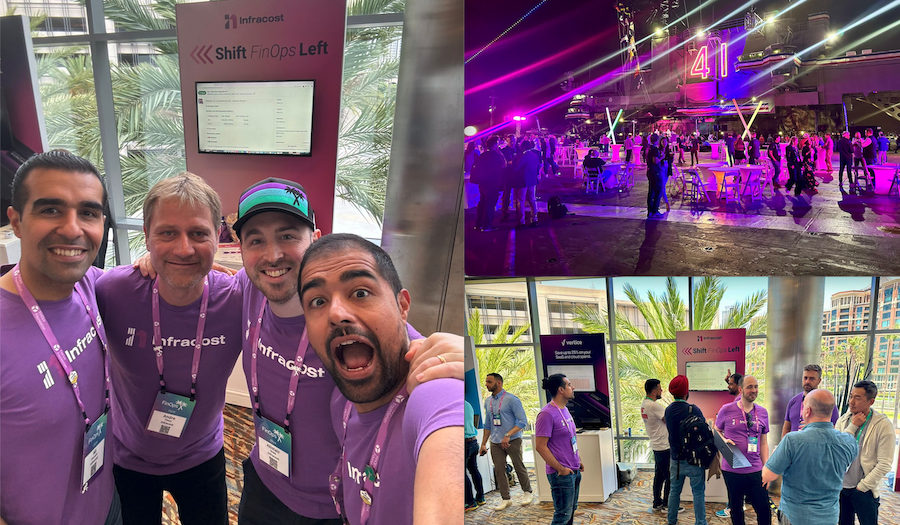
Introducing Issue Explorer
We wrote a blog that covered the cloud cost optimization formula, in which there is a usage and a unit price that contributes to your cloud bill. The usage component of that formula is fully dependent on engineering teams taking action to change the usage, whereas the unit price can be done in a centralized manner via FinOps tasks such as purchasing reserved instances.
Today, we are announcing Issue Explorer, which is here to make waste reduction of the usage a team-wide, actionable process—no meetings or Jira tickets, just a streamlined approach to cut unnecessary costs from day one.
Why did we build Issue Explorer? Because for FinOps teams, tackling waste requires engineering involvement at every level. Issue Explorer gives them a way to prioritize, organize, and fix issues at the source. It’s more than just reporting waste; it empowers engineers to take direct action in their workflows.
1. Here’s how it works: two steps to cut waste
- Seal the leaks. With cloud resources controlled by infrastructure-as-code, adding waste-reducing policies directly into CI/CD workflows is the best way to stop problems before they start.
- Burndown existing issues. The best way to do this is to empower engineering teams to action waste within theircode and workflow, by pinpointing the exact files and lines they need to change.
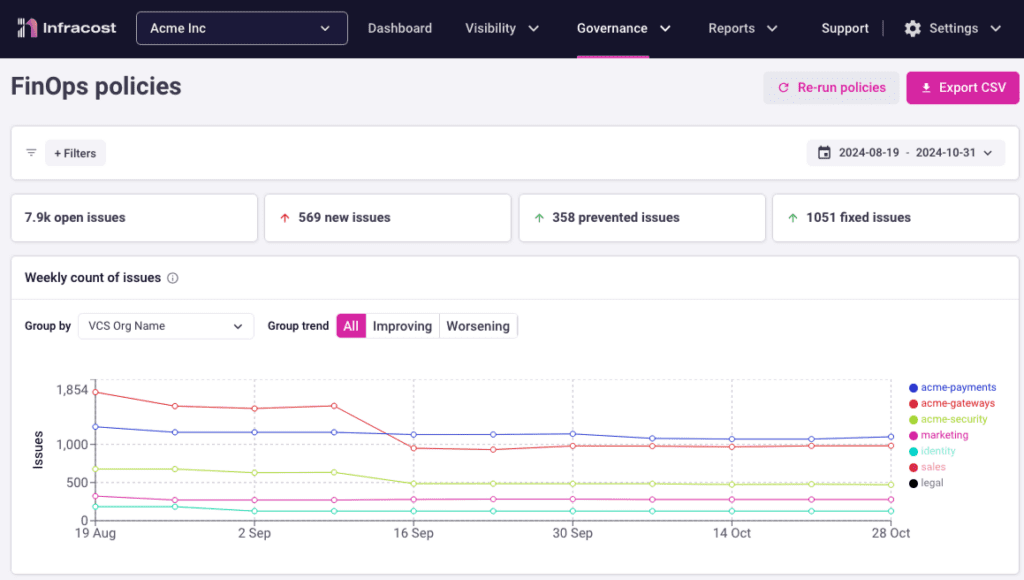
2. Use policies to drive action, not meetings & Jira tickets
Too often, waste reports lead to long meetings and endless Jira tickets. Issue Explorer flips the script with an actionable, streamlined approach. It identifies which of the 70+ AWS, Azure, and Google best practices from the Well-Architected Frameworks aren’t being followed. From there, FinOps teams can decide which policies are most critical to their organization, picking the top 3-5 to focus on each quarter.
Once priorities are set, Infracost takes care of the rest: FinOps teams simply enable pull request comments for those selected policies, and Infracost automatically checks all pull requests against them. Engineers can then focus on fixing these high-priority issues directly in their code, reducing waste without the need for extra meetings or task-tracking.

3. Track your improvements in real time
Results matter, and we made sure Issue Explorer makes it easy to track wins. Here’s a snapshot of a customer’s progress on their tagging policy:
- Proactive prevention: Out of 8.1K new issues since July 1, 80% (6.5K) were prevented before the code was merged.
- Burning down the backlog: The team has resolved 41% (39K) of existing tagging issues since July, which translates to 13K fixes per month. At this pace, they’re on track to clear-out all 55K remaining issues in four months!
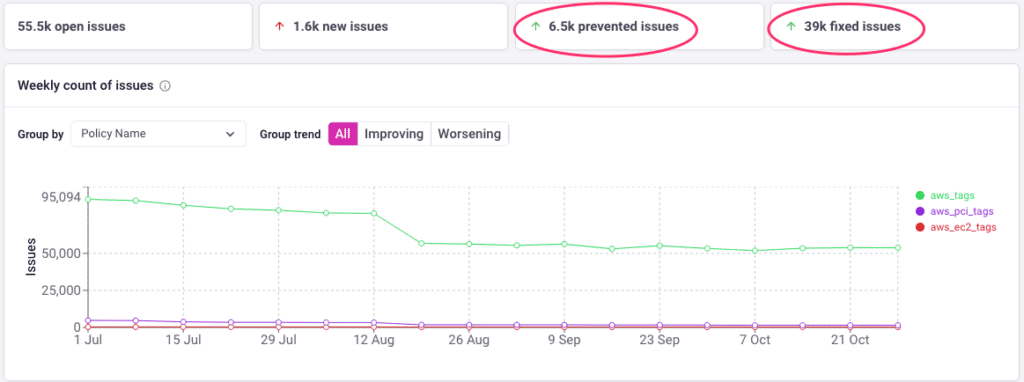
4. Ready to get started?
Login to Infracost Cloud to see Issue Explorer from the Governance > Tagging & FinOps policies pages and reduce your cloud waste.
Azure Repos App
FinOps teams at large enterprises using Azure face the challenge of enforcing policy and governance across tens of thousands of repositories, and thousands of engineers. Without automation, it is difficult to keep up with all of the new applications being launched and ensure that they follow best practices.

We’ve released a new Infracost Azure Repos App to solve that problem. Like our GitHub and GitLab integrations, this app lets you enable Infracost across all your Azure Repos with just a few clicks—no CI/CD changes required!
Try it now to help your engineering teams see cost estimates and follow FinOps best practices directly within their pull requests.
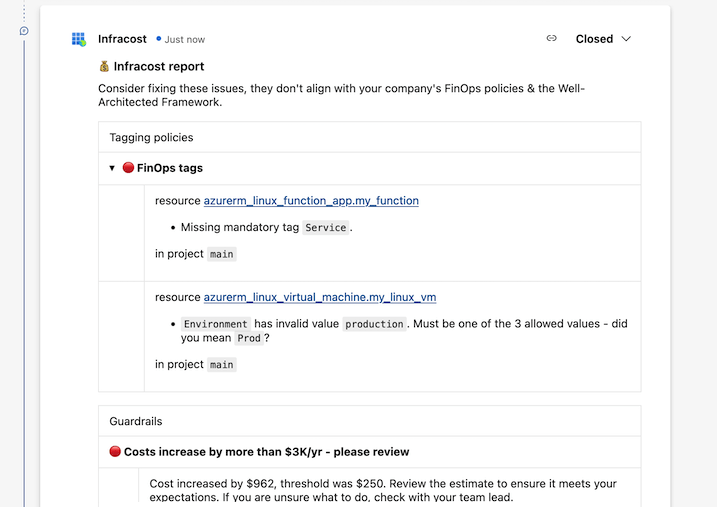
Massive mono-repos
Early adopters of Terraform often began with mono-repos—a single repository containing multiple infrastructure-as-code projects. While convenient initially, these mono-repos can expand rapidly, housing thousands of projects. As a result, running Infracost across them can become slow, creating challenges for engineers who rely on fast feedback in pull requests.
To tackle this, we’ve re-architected our hosted Infracost runners specifically for large-scale mono-repos. Our team rewrote the runners in Golang, implemented advanced caching systems, and scaled our infrastructure to handle the demands of these extensive repositories—ensuring that even the largest mono-repos are scanned quickly. This is now live for the GitHub App, GitLab App and Azure Repos App.
In other news
Alec joined our team as the first sales hire and will be at FinOpsX Barcelona alongside me and Hassan. Infracost’s engineering adoption keeps growing and we hit 11,000 stars on GitHub ⭐
Finally, join Hassan and our partners at Env0 for a webinar on Shifting FinOps Left with IaC on 21 Nov!

